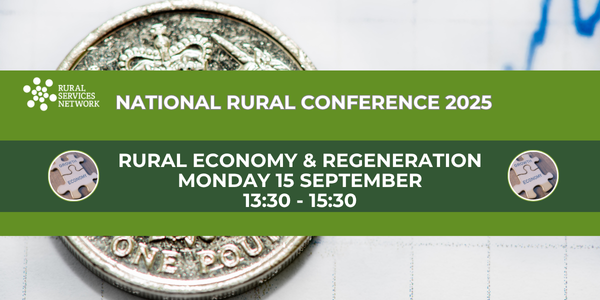T: 01822 851370 E: [email protected]
RSN Voices Serious Concerns Over ‘Fairness’ Of Settlement
Read here...
The National Rural Conference 2025 - Speaker Biographies
| . | 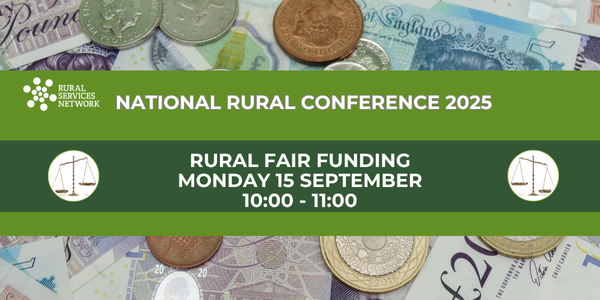 |
Kerry Booth, Chief Executive, Rural Services Network
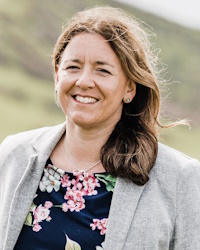 Kerry is the Chief Executive of the Rural Services Network.
Kerry is the Chief Executive of the Rural Services Network.
She has been working with the Rural Service Network for almost ten years, honing her skills at representing rural service providers at a strategic level. Kerry is highly motivated, strategic thinker with excellent communication skills, able to interact with a range of audiences in an engaging and persuasive manner. She has a successful track record of working in a political environment and excellent understanding of the challenges facing organisations delivering services in rural communities.
Prior to joining the RSN, Kerry worked for almost a decade in Local Government where she was part of the National Graduate Development Programme, completing her Post Graduate Diploma in Local Government Management at Warwick Business School. She then held a number of positions in a rural local authority with the last five years spent leading a joint Policy, Performance and Improvement Team across two shared rural local authorities.
Cllr Roger Phillips, Chairperson of Herefordshire Council and Chair of Rural Services Network
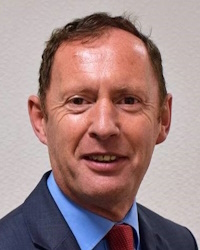 Roger is an experienced councillor holding office since 2011, he represents Herefordshire Council.
Roger is an experienced councillor holding office since 2011, he represents Herefordshire Council.
He is a previous Leader of Herefordshire County Council and former chairman of the West Midlands Councils, Regional Transport Partnership and joint Strategy and Investment Board.
Councillor Phillips now sits on several outside bodies including County Councils Network, Hereford and Worcester Fire Authority, Local Government Association and Worcester Local Pension Board.
Adrian Jenkins, Founder and Chief Analyst, Pixel Financial Management
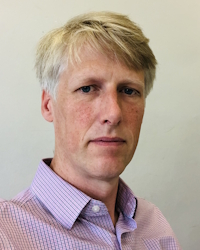 Through Pixel Financial Management, Adrian provides support and advice on local government funding and business rate retention scheme to more than 160 local authorities.
Through Pixel Financial Management, Adrian provides support and advice on local government funding and business rate retention scheme to more than 160 local authorities.
Rachael Sanders, Director of Finance, Herefordshire Council
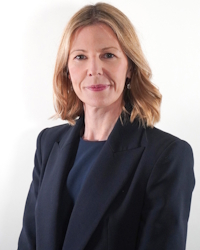 Rachael Sanders is Director of Finance (S151 Officer) at Herefordshire Council with responsibility for Finance, Performance, Commercial & Procurement, Fraud, Risk and Insurance Services. She is a Chartered Accountant with over 20 years financial management and accountancy experience; including local government, public and private sector experience. She is an Advisory Panel Member for the Financial Reporting Council (FRC) and chair of CIPFA’s Better Reporting Group.
Rachael Sanders is Director of Finance (S151 Officer) at Herefordshire Council with responsibility for Finance, Performance, Commercial & Procurement, Fraud, Risk and Insurance Services. She is a Chartered Accountant with over 20 years financial management and accountancy experience; including local government, public and private sector experience. She is an Advisory Panel Member for the Financial Reporting Council (FRC) and chair of CIPFA’s Better Reporting Group.
Laura Dyer, Deputy Chief Executive Places, Engagement & Libraries, Arts Council
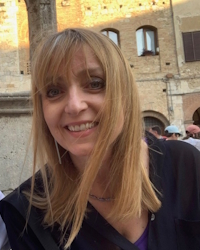 Laura Dyer MBE leads on the growing agenda around local government, devolution and place-making, as well as overall leadership of all five of the Arts Council’s area teams.
Laura Dyer MBE leads on the growing agenda around local government, devolution and place-making, as well as overall leadership of all five of the Arts Council’s area teams.
Before joining the Arts Council, Laura was Chief Executive of East Midlands Arts Board. Until 2010, when she became Executive Director Midlands and South West, she held the post of Executive Director, East Midlands. During her time in the East Midlands, Laura led a capital development programme which transformed the region's cultural landscape, with a total investment of over £130 million creating six new arts and cultural facilities.
After postgraduate studies at Essex University, Laura started her career in the arts in a number of theatre and community arts companies before moving into large outdoor events programming at the Garden Festival Wales. She went on to work for local authorities in Norfolk and London.
Laura joined the Arts Council in 2003. She is a member of our Executive Board.
Sean Hughes, Senior Manager, PwC UK
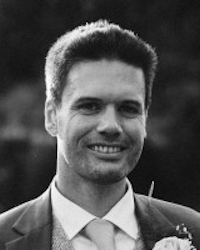 Sean has almost 20 years' experience of helping organisations to overcome complex labour market challenges. This includes developing apprenticeship policies for the Department for Business, Innovation & Skills, building sector-wide skills strategies and analysing the impact of emerging technologies on job roles in key industries.
Sean has almost 20 years' experience of helping organisations to overcome complex labour market challenges. This includes developing apprenticeship policies for the Department for Business, Innovation & Skills, building sector-wide skills strategies and analysing the impact of emerging technologies on job roles in key industries.
Sean is leading PwC's work for UK Research & Innovation to create an AI Skills Hub for businesses. The Hub was launched in June 2025 to help employers with two key questions: Where do I start with adopting AI into my organisation and how do I access the skills to deliver on my AI adoption plan? It's free to access, contains over 500 high quality training courses, and is initially focused on supporting organisations from four sectors: Agriculture & Food Processing, Construction, Creative Industries, and Transport, Logistics & Warehousing.
Ross Lowrie, Principal Manager (Low Carbon Growth & Net Zero), North East Combined Authority
 Born and raised in Northumberland, Ross has over a decade of experience in low carbon energy regulation and policy at both a national and regional level. Ross leads the new North East Combined Authority’s Low Carbon Growth & Net Zero team, working with public and private organisations to accelerate the North East journey to Net Zero and stimulate growth in low carbon sectors. Ross also leads on rural business support, environment and coastal matters – all key issues in the future economic success of the North East.
Born and raised in Northumberland, Ross has over a decade of experience in low carbon energy regulation and policy at both a national and regional level. Ross leads the new North East Combined Authority’s Low Carbon Growth & Net Zero team, working with public and private organisations to accelerate the North East journey to Net Zero and stimulate growth in low carbon sectors. Ross also leads on rural business support, environment and coastal matters – all key issues in the future economic success of the North East.
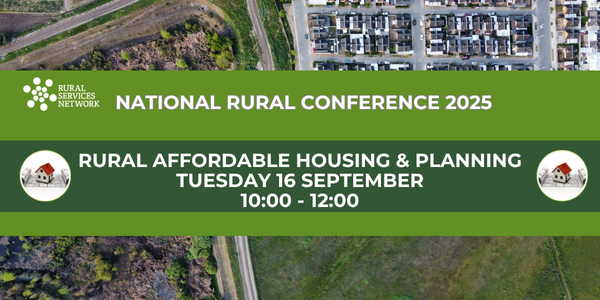 |
Ulrike Maccariello, Development Director, Hastoe Housing Association
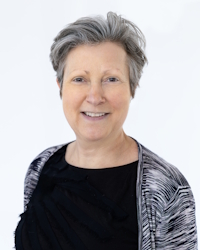 Ulrike has been Hastoe’s Development Director since 2019 having first joined as Development Manager in 2006. She has a wealth of experience in rural housing and working with rural communities to develop new affordable homes. She has a strong interest in environmental matters and was instrumental in developing Hastoe’s New-Build Standard which, since 2021, has introduced efficiencies and a level of standardisation that maintains high development standards while improving value for money. Ulrike’s specialism is in developing homes to very high energy-efficiency standards, including Passivhaus. She has a Diploma in Surveying Practice from The College of Estate Management.
Ulrike has been Hastoe’s Development Director since 2019 having first joined as Development Manager in 2006. She has a wealth of experience in rural housing and working with rural communities to develop new affordable homes. She has a strong interest in environmental matters and was instrumental in developing Hastoe’s New-Build Standard which, since 2021, has introduced efficiencies and a level of standardisation that maintains high development standards while improving value for money. Ulrike’s specialism is in developing homes to very high energy-efficiency standards, including Passivhaus. She has a Diploma in Surveying Practice from The College of Estate Management.
Max Banfield, RHE Programme Manager, ACRE
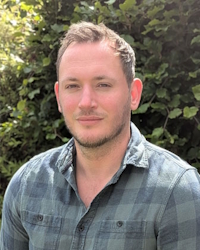 Max joined ACRE in May 2025 as Programme Manager for the National Rural Housing Enabler Programme financed by DEFRA. He leads on day-to-day project management, performance monitoring and the development of relationships inside and outside of the Acre network, providing support and guidance to Rural Housing Enablers within the scheme.
Max joined ACRE in May 2025 as Programme Manager for the National Rural Housing Enabler Programme financed by DEFRA. He leads on day-to-day project management, performance monitoring and the development of relationships inside and outside of the Acre network, providing support and guidance to Rural Housing Enablers within the scheme.
His previous work in the charity sector centred around support for those affected by imprisonment, having held roles in operational management and later specialising in monitoring, research and evaluation.
Katarina Kubinakova, Research Fellow, Countryside and Community Research Institute
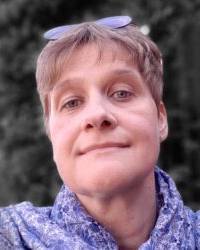 Katarina Kubinakova is a Research Fellow at the Countryside and Community Research Institute at the University of Gloucestershire.
Katarina Kubinakova is a Research Fellow at the Countryside and Community Research Institute at the University of Gloucestershire.
Katarina has more than twenty years of experience in community and rural development policy work, with expertise in practice-based and academic research in the UK and EU. She has a strong track record in policy and programme evaluation in the UK and EU relating to rural and community development, with experience working with local, regional, and central government officials in the UK, EU Member States, Serbia and Armenia, as well as a wide range of stakeholders (including farmers, rural businesses, LAGs and NGOs).
Her recent research includes RUSTIK - a four-year transdisciplinary HORIZON Europe research project aiming to enable rural communities’ actors and policymakers to design better strategies, initiatives and policies fostering sustainability transitions of rural areas, and Evaluation of the ACRE Rural Housing Enabler Programme.
Sarah Crush, Social Value Manager, Thakeham working in strategic partnership with Plunkett UK
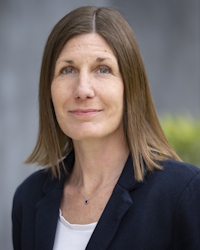 Sarah has worked with Thakeham for six years and leads on their social value strategy, measurement and delivery. This includes community engagement and grass roots organisation support, managing Thakeham’s charitable giving and volunteering programmes, promoting positive economic social impact via jobs, training and skills support, as well as schools outreach for careers education and Thakeham’s bespoke Eddie & Ellie's Wild Adventures programme in primary schools. Sarah is also responsible for Thakeham’s strategic relationship with Plunkett UK, developing their approach to placemaking and community business at new developments
Sarah has worked with Thakeham for six years and leads on their social value strategy, measurement and delivery. This includes community engagement and grass roots organisation support, managing Thakeham’s charitable giving and volunteering programmes, promoting positive economic social impact via jobs, training and skills support, as well as schools outreach for careers education and Thakeham’s bespoke Eddie & Ellie's Wild Adventures programme in primary schools. Sarah is also responsible for Thakeham’s strategic relationship with Plunkett UK, developing their approach to placemaking and community business at new developments
 |
Cllr Nick Oliver, Cabinet Lead for Finance and Value for Money, Northumberland Council
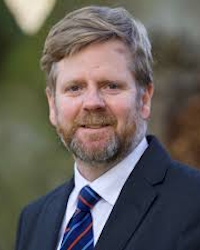 I have broad commercial experience in the small business and enterprise sectors - general management, e-commerce, marketing, retail, business planning and raising finance.
I have broad commercial experience in the small business and enterprise sectors - general management, e-commerce, marketing, retail, business planning and raising finance.
I am the the Northumberland Council porfolio holder for Finance and Value for Money and my responsibilites include Customer Services; Finance & MTFP; Governance; HR & OD; Procurement; Revenues & Benefits; Performance; Audit & Risk; Member Services; ICT; Digital Connectivity; Elections; Corporate Health & Safety and BEST.
I also have over 30 years business experience and run the web channel of our family retail business.
Chris Thompson, Director of Digital and IT, Northumberland Council
 I am a creative, digital transformation specialist with over 25 years experience in the tech and digital industry.
I am a creative, digital transformation specialist with over 25 years experience in the tech and digital industry.
I am a Barefoot trained personal and business coach. I work with individuals and teams to help enable change and performance through creative and traditional coaching.
I enjoy improving user experience through design and innovation. I am always looking to connect with likeminded people to create great things.
Chris Hockley, Head of Engagement, Digital Voice Programme, BT
 Chris has over 16 years of expertise in driving change through innovation within the retail sector. With an analytics background, he seamlessly integrates data-driven decisions with a deep comprehension of customer experience, ensuring BT's transition to an all-IP platform prioritizes the customer.
Chris has over 16 years of expertise in driving change through innovation within the retail sector. With an analytics background, he seamlessly integrates data-driven decisions with a deep comprehension of customer experience, ensuring BT's transition to an all-IP platform prioritizes the customer.
He commenced his professional journey at Marks & Spencer and Virgin Atlantic, later advancing to EE/BT. In his tenure at EE's Retail consumer division, he crafted a new conversational framework for over 5,000 personnel and oversaw the design of new store formats as well as customer journey-mapping across all retail stores and indirect partners. Most recently focused on helping people move from the old landline system to a new, more reliable digital service. Through working with local councils, charities, and care providers, ensures that all understand what’s changing and how to make the switch as easy as possible.
Bryn Jones, Director, Shared Rural Network
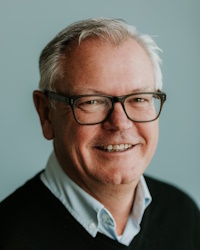 Bryn is Director of the Shared Rural Network (SRN) at Mova. The SRN is a mobile infrastructure project to improve 4G coverage in rural and remote areas across the UK. In his role, Bryn leads the Movateam in delivering the publicly funded element of the programme. Bryn has decades of experience in the UK mobile market, having helped develop and deliver award-winning customer experiences for brands such as Virgin Mobile, Virgin Media, EE and Three. He previously managed Virgin’s mobile and off-net broadband technologies, Three’s mobile network for 3G, 4G and its preparation for 5G, and, as a Board Member of MBNL, helped manage the EE/Three network sharing arrangements and roll-outs. Mova, a joint venture of the mobile operators, manages and runs the SRN programme and provides reporting and tracking information for the programme. Bryn works closely with Building Digital UK (BDUK), Ofcom and the mobile operators to deliver coverage improvements across the UK and ensure value for public spend.
Bryn is Director of the Shared Rural Network (SRN) at Mova. The SRN is a mobile infrastructure project to improve 4G coverage in rural and remote areas across the UK. In his role, Bryn leads the Movateam in delivering the publicly funded element of the programme. Bryn has decades of experience in the UK mobile market, having helped develop and deliver award-winning customer experiences for brands such as Virgin Mobile, Virgin Media, EE and Three. He previously managed Virgin’s mobile and off-net broadband technologies, Three’s mobile network for 3G, 4G and its preparation for 5G, and, as a Board Member of MBNL, helped manage the EE/Three network sharing arrangements and roll-outs. Mova, a joint venture of the mobile operators, manages and runs the SRN programme and provides reporting and tracking information for the programme. Bryn works closely with Building Digital UK (BDUK), Ofcom and the mobile operators to deliver coverage improvements across the UK and ensure value for public spend.
Lianne Williams, Strategy, Policy and Engagement Advisor, Government Digital Service
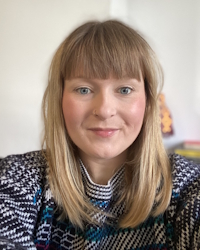 Lianne Williams is a Strategy, Policy and Engagement Advisor at the Government Digital Service, part of the Department for Science, Innovation and Technology (DSIT), where she plays an important role in the GOV.UK One Login programme. With a strong focus on public service transformation, Lianne leads the parliamentary correspondence process, ensuring timely and effective responses to MPs, parliamentary questions, and public enquiries.
Lianne Williams is a Strategy, Policy and Engagement Advisor at the Government Digital Service, part of the Department for Science, Innovation and Technology (DSIT), where she plays an important role in the GOV.UK One Login programme. With a strong focus on public service transformation, Lianne leads the parliamentary correspondence process, ensuring timely and effective responses to MPs, parliamentary questions, and public enquiries.
She also supports the programme’s international engagement efforts—preparing speakers, curating agendas, and fostering global collaboration around digital identity. Lianne is also instrumental in communicating with services onboarding to One Login and actively engages with voluntary organisations to raise awareness and promote inclusive access to government services.
Her work reflects a deep commitment to strategic policy development, stakeholder engagement, and the delivery of user-centred digital solutions across government.
Clare Evans, Director of Transformation, Tewkesbury Borough Council
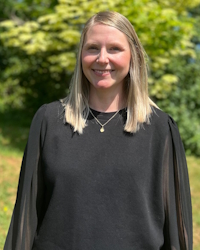 Clare Evans is the Director of Transformation at Tewkesbury Borough Council, where she leads across customer experience, digital innovation, data and technology, communications, programme delivery, and policy. With a collaborative and forward-thinking approach, Clare drives transformation that improves service delivery and strengthens community outcomes.
Clare Evans is the Director of Transformation at Tewkesbury Borough Council, where she leads across customer experience, digital innovation, data and technology, communications, programme delivery, and policy. With a collaborative and forward-thinking approach, Clare drives transformation that improves service delivery and strengthens community outcomes.
Clare is recognised for aligning change with customer needs, embedding continuous improvement, and fostering strong cross-functional collaboration. She works closely with senior leadership to shape and implement inclusive, data-informed change initiatives that enable the organisation to respond and adapt to both current and emerging challenges.
 |
Andrew Oswald, Energy and Sustainability Manager, West Suffolk Council
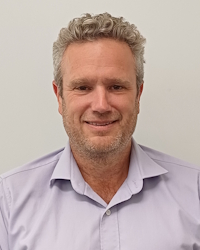 Andy Oswald is the Energy & Sustainability Manager at West Suffolk Council and has over 20 years’ experience of delivering energy efficiency and renewable energy projects, both in the private and public sector. Andy is a Chartered Environmentalist (CEnv) and Advanced Energy Manager through the Energy Institute. Andy has successfully delivered energy efficiency and renewable energy schemes through the Public Sector Decarbonisation Scheme, Feed in Tariff, Renewable Heat Incentive, Renewable Obligation Certificates, Power Purchase Agreements, ECO, CERTS and DESNZ funding. Andy currently manages a 12.4MW solar farm and 9MW of roof mounted solar spread over 100 roofs.
Andy Oswald is the Energy & Sustainability Manager at West Suffolk Council and has over 20 years’ experience of delivering energy efficiency and renewable energy projects, both in the private and public sector. Andy is a Chartered Environmentalist (CEnv) and Advanced Energy Manager through the Energy Institute. Andy has successfully delivered energy efficiency and renewable energy schemes through the Public Sector Decarbonisation Scheme, Feed in Tariff, Renewable Heat Incentive, Renewable Obligation Certificates, Power Purchase Agreements, ECO, CERTS and DESNZ funding. Andy currently manages a 12.4MW solar farm and 9MW of roof mounted solar spread over 100 roofs.
Dr Natlie Partridge, Research Associate in Rural Innovation, NICRE
 I am a Research Associate in Rural Innovation at NICRE, engaging with our partners to help deliver and evaluate our practical innovation projects with communities and businesses in the North East.
I am a Research Associate in Rural Innovation at NICRE, engaging with our partners to help deliver and evaluate our practical innovation projects with communities and businesses in the North East.
The projects include topics such as lower carbon food business logistics, innovation in agriculture, net zero transitions in community spaces, redevelopment of rural buildings and community-led housing. My work involves community and stakeholder engagement, the planning and delivery of events, and primary research through surveys, interviews, observations and workshops.
Su Morgan, Founder/Director, Tadcrafters CIC
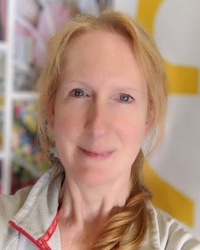 I run an award-winning community interest company which I founded to promote community cohesion and engagement in Tadcaster, North Yorkshire. This has led to working in partnership with other organisations on initiatives as Sustainable Tadcaster to help tackle the economic, social and environmental effects of climate change, and The Tadcaster Arts and Community Centre with the aim of establishing a creative hub in the town. As well as being a Director of Tadcrafters CIC I am also a Development Officer for Community First Yorkshire.
I run an award-winning community interest company which I founded to promote community cohesion and engagement in Tadcaster, North Yorkshire. This has led to working in partnership with other organisations on initiatives as Sustainable Tadcaster to help tackle the economic, social and environmental effects of climate change, and The Tadcaster Arts and Community Centre with the aim of establishing a creative hub in the town. As well as being a Director of Tadcrafters CIC I am also a Development Officer for Community First Yorkshire.
My degree in textiles, lead to a career in fashion retailing and industry where I gained a graduate diploma in Procurement and Supply (MCIPS). I later completed a Postgraduate Certificate in Education (PGCE) and spent a number of years as a secondary school teacher before founding Tadcrafters, becoming a Fellow of the School of Social Entrepreneurs and a Fellow of the Royal Society of Arts (FRSA). I now support voluntary sector organisations across North Yorkshire.
Reece Emmitt, Stakeholder Engagement Manager, NESO (National Energy System Operator)
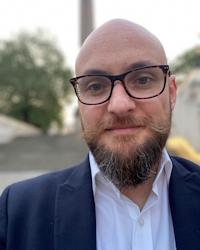 Reece Emmitt is Stakeholder Engagement Manager at National Energy System Operator. He leads the Societal Engagement Team in the Strategic Energy Planning directorate, making sure that the voice of society is heard in the development of NESO's strategic energy plans, including the industry first Strategic Spatial Energy Plan (SSEP).
Reece Emmitt is Stakeholder Engagement Manager at National Energy System Operator. He leads the Societal Engagement Team in the Strategic Energy Planning directorate, making sure that the voice of society is heard in the development of NESO's strategic energy plans, including the industry first Strategic Spatial Energy Plan (SSEP).
Sobia Khurram, Community Energy Advisor, Northern Powergrid
 Sobia Khurram is an experienced energy and sustainability professional with a postgraduate qualification in Environmental Studies. With over a decade of expertise, she combines deep knowledge with a practical, solutions-focused approach.
Sobia Khurram is an experienced energy and sustainability professional with a postgraduate qualification in Environmental Studies. With over a decade of expertise, she combines deep knowledge with a practical, solutions-focused approach.
As a Community Energy Advisor at Northern Powergrid, Sobia plays a key role in supporting Community Energy (CE) groups. She delivers training and tailored guidance to help groups prepare strong funding applications, advises on low-carbon technologies, assists with carbon emission assessments, and works closely with communities to design realistic carbon reduction plans that align with the UK’s Net Zero targets. Her work empowers local groups to take climate action, reduce energy costs, and create lasting benefits for their communities.
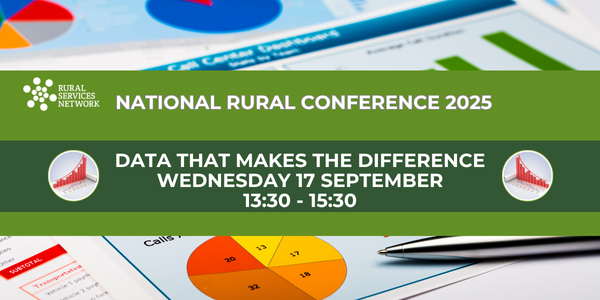 |
Dan Jones, Data Analyst, Rural Services Network
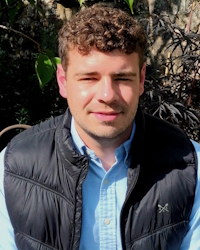 Dan joined the RSN in 2025, bringing a deep passion for addressing the unique challenges facing rural communities and extensive experience researching these complex issues.
Dan joined the RSN in 2025, bringing a deep passion for addressing the unique challenges facing rural communities and extensive experience researching these complex issues.
He has studied for a PhD investigating the impacts of flooding on rural communities and has published work in peer-reviewed journals advocating for fairer consideration of rural areas in flood risk management.
Dan's experience in rural research positions him to strengthen the RSN's evidence-based advocacy, ensuring that rural voices are not only represented but that policy decisions reflect the complex realities of rural life.
Maram Tabidi, Research and Engagement Officer, The Churchill Fellowship
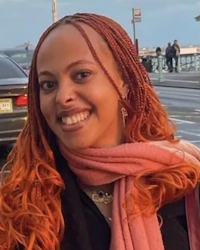 Maram is the Research and Engagement Officer, supporting the Research and Engagement Managers in developing programmes and assisting the work of Fellows across our universal themes. Her experience is in grassroots activism but she’s passionate about creating change across a variety of sectors. In her spare time, she enjoys visiting art galleries, long walks, gigs, and travelling.
Maram is the Research and Engagement Officer, supporting the Research and Engagement Managers in developing programmes and assisting the work of Fellows across our universal themes. Her experience is in grassroots activism but she’s passionate about creating change across a variety of sectors. In her spare time, she enjoys visiting art galleries, long walks, gigs, and travelling.
Rima Berry, Churchill Fellow, The Churchill Fellowship
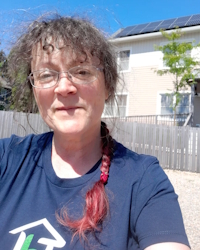 Rima is a Development Manager with Yorkshire Dales Millennium Trust (YDMT), leading on environmental, community and place regeneration projects. She started with YDMT in 2009 as a Project Co-ordinator delivering what turned into a ten year, multi-million pound rural community regeneration programme centred on the Yorkshire Dales. Prior to that Rima led her own consultancy for many years and supported many rural economic and community regeneration projects across the north.
Rima is a Development Manager with Yorkshire Dales Millennium Trust (YDMT), leading on environmental, community and place regeneration projects. She started with YDMT in 2009 as a Project Co-ordinator delivering what turned into a ten year, multi-million pound rural community regeneration programme centred on the Yorkshire Dales. Prior to that Rima led her own consultancy for many years and supported many rural economic and community regeneration projects across the north.
A long-term resident in the Yorkshire Dales, she has first-hand experience of the rural housing issues in protected landscapes. She was awarded a Churchill Fellowship in 2019 researching how to support rural affordable housing through community land ownership, taking inspiration from the success factors of community land trusts (CLTs) in the USA. Her Fellowship was completed in 2023. Equitable community development is her watch word.
Howard Nelson, Churchill Fellow, The Churchill Fellowship
 Howard Nelson is the Chief Finance and Operating Officer at Keys Academies Trust and a 2019 Churchill Fellow. Supported by The Royal Countryside Fund, his Churchill Fellowship explored how small rural schools can thrive as drivers of sustainable community development. During his research in Saskatchewan and Nova Scotia, Howard engaged with educators, First Nations leaders, and government officials, with particular focus on the community-based approach of Geo Nova Scotia and the impact of Dave Gorman’s initiatives around food in schools. These models demonstrated how schools can serve as hubs for local collaboration, improving outcomes in education, food security, and wellbeing. Howard is now working to adapt these insights for the UK context, supporting rural schools to foster community connections through shared purpose and innovative partnerships. He brings to the National Rural Conference a passion for reimagining rural education as a catalyst for resilient, connected communities.
Howard Nelson is the Chief Finance and Operating Officer at Keys Academies Trust and a 2019 Churchill Fellow. Supported by The Royal Countryside Fund, his Churchill Fellowship explored how small rural schools can thrive as drivers of sustainable community development. During his research in Saskatchewan and Nova Scotia, Howard engaged with educators, First Nations leaders, and government officials, with particular focus on the community-based approach of Geo Nova Scotia and the impact of Dave Gorman’s initiatives around food in schools. These models demonstrated how schools can serve as hubs for local collaboration, improving outcomes in education, food security, and wellbeing. Howard is now working to adapt these insights for the UK context, supporting rural schools to foster community connections through shared purpose and innovative partnerships. He brings to the National Rural Conference a passion for reimagining rural education as a catalyst for resilient, connected communities.
Philippa Simmonds, Postdoctoral Researcher, Countryside and Community Research Institute
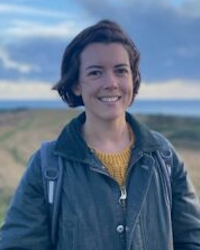 Philippa (Pippa) Simmonds is a postdoctoral researcher based at the CCRI, University of Gloucestershire. She has a background in clinical medicine and global health, and her research interests include food systems, participatory research, and equitable low-carbon transitions. Pippa’s PhD investigated UK livestock sector discourses and practices pertaining to relationships between ruminant livestock and climate change. During her PhD, she undertook policy placements at both the Welsh Government and the UK Parliamentary Office for Science and Technology (POST), where she researched aspects of just transitions and green skills. She also worked on Rural Climathon projects around England. Pippa’s current main role is as a researcher on the UKRI-funded “Tri-Some Chicken” project, which is analysing the UK industrial chicken meat sector from a resilience perspective.
Philippa (Pippa) Simmonds is a postdoctoral researcher based at the CCRI, University of Gloucestershire. She has a background in clinical medicine and global health, and her research interests include food systems, participatory research, and equitable low-carbon transitions. Pippa’s PhD investigated UK livestock sector discourses and practices pertaining to relationships between ruminant livestock and climate change. During her PhD, she undertook policy placements at both the Welsh Government and the UK Parliamentary Office for Science and Technology (POST), where she researched aspects of just transitions and green skills. She also worked on Rural Climathon projects around England. Pippa’s current main role is as a researcher on the UKRI-funded “Tri-Some Chicken” project, which is analysing the UK industrial chicken meat sector from a resilience perspective.
Aimee Morse, Research Fellow, NICRE
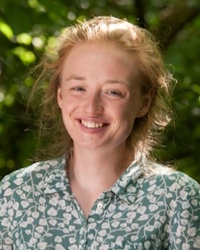 Aimee is a Research Fellow at the National Innovation Centre for Rural Enterprise (NICRE) and the Countryside and Community Research Institute (CCRI). At NICRE, her work supports rural local authorities, businesses and communities to collaboratively develop locally relevant climate actions across a range of sectors. At the CCRI, her research focuses on rural local authorities' and communities' responses to economic, demographic, and environmental change. Aimee continues to work on research projects in areas related to her doctoral research which focused on the social dynamics of farmer groups, including monitoring and evaluating agri-environment policy and understanding the drivers of farmer and land manager decision-making.
Aimee is a Research Fellow at the National Innovation Centre for Rural Enterprise (NICRE) and the Countryside and Community Research Institute (CCRI). At NICRE, her work supports rural local authorities, businesses and communities to collaboratively develop locally relevant climate actions across a range of sectors. At the CCRI, her research focuses on rural local authorities' and communities' responses to economic, demographic, and environmental change. Aimee continues to work on research projects in areas related to her doctoral research which focused on the social dynamics of farmer groups, including monitoring and evaluating agri-environment policy and understanding the drivers of farmer and land manager decision-making.
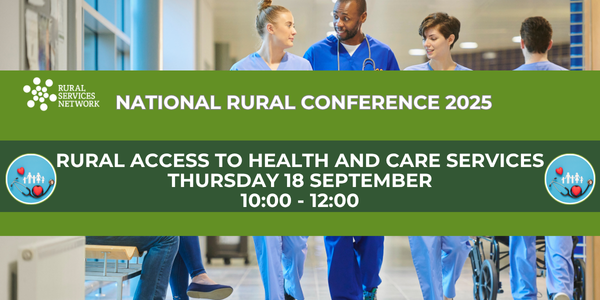 |
Dr Christina Dobson, Senior Research Associate, Newcastle University
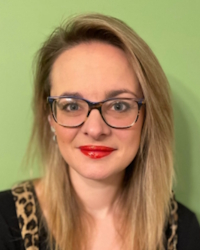 Christina is an applied qualitative health researcher, with a strong commitment to patient and public involvement and engagement.
Christina is an applied qualitative health researcher, with a strong commitment to patient and public involvement and engagement.
Her key research focuses are:
- cancer diagnostic pathways and barriers to early diagnosis
- cancer inequalities and intersectionality
- rural inequalities, and examination of residents' experiences of health, wellbeing, and services
Judith Vickress, Domestic Abuse Consultant and Churchill Fellow, The Churchill Fellowship
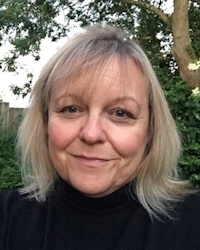 Judith Vickress is Founder of RiTA-Rural Initiatives Tackling Abuse (CIC), a new and evolving organisation created to transform how rural communities prevent and respond to domestic abuse and stalking by amplifying survivor voices, strengthening coordinated systems, and co-creating place-based solutions that promote safety, equity, and resilience. RiTA is inspired by learning from travels in the USA, Canada, and Australia after Judith was awarded a prestigious Churchill Fellowship to undertake international research to drive change in the UK.
Judith Vickress is Founder of RiTA-Rural Initiatives Tackling Abuse (CIC), a new and evolving organisation created to transform how rural communities prevent and respond to domestic abuse and stalking by amplifying survivor voices, strengthening coordinated systems, and co-creating place-based solutions that promote safety, equity, and resilience. RiTA is inspired by learning from travels in the USA, Canada, and Australia after Judith was awarded a prestigious Churchill Fellowship to undertake international research to drive change in the UK.
A former family lawyer with extensive experience supporting victims of domestic and sexual violence, she has advised on systems change and developed domestic abuse-informed models and accreditation frameworks in national roles, enhancing practice standards to improve the Coordinated Community Response (CCR). Judith was seconded to work with the Domestic Abuse Commissioner as Practice Lead, supporting service mapping and engaging strategic leads. She has chaired National Groups that have influenced government policy change.
Dr Tim Sanders, Senior Clinical Lecturer in Rural Medicine, The University of Lancashire
 Dr Tim Sanders is a GP in the rural Eden Valley in North East Cumbria. Alongside his clinical role, he is a Clinical Lecturer in Rural Medicine and Urgent Care here. He also co-ordinates the clinical teaching programme for Cumbria Health on Call. He is a GP appraiser and Mental Health Act Section 12 approved GP. He volunteers as a team doctor for Penrith Mountain Rescue Team. When he is not working, he can be found climbing, walking and running in the mountains, sailing on Ullswater and enjoying family adventures in his campervan.
Dr Tim Sanders is a GP in the rural Eden Valley in North East Cumbria. Alongside his clinical role, he is a Clinical Lecturer in Rural Medicine and Urgent Care here. He also co-ordinates the clinical teaching programme for Cumbria Health on Call. He is a GP appraiser and Mental Health Act Section 12 approved GP. He volunteers as a team doctor for Penrith Mountain Rescue Team. When he is not working, he can be found climbing, walking and running in the mountains, sailing on Ullswater and enjoying family adventures in his campervan.
As a Senior Clinical Lecturer at the National Centre for Remote and Rural Medicine at our Westlakes Campus in Whitehaven, Tim leads the MSc Mountain Medicine, MSc Urgent Care and MSc Remote and Rural Medicine programmes.
Dr Chris Ford, Senior Lecturer in Accounting & Management, Lancaster University
 Chris Ford's academic work is oriented towards understanding how value is created through collaborative innovation, how this value is accounted for, and how innovative initiatives are evaluated, managed, and sustained. As well as academic research in this area, Chris advises and consults on these topics for both private sector and government organisations, as part of a long term commitment to making his research impactful, and of value to society. Currently, Chris acts as an academic advisor or committee member to a number of organisations, holding the following positions: Cabinet Office Policy Fellow advising the HM Government Open Innovation Team; sole academic member of the Business Committee of the Institute of Chartered Accountants in England and Wales; member of the UK Government's 'Connected Digital Twins' Governance and Trust advisory committee; Council Member of the International Management Control Association.
Chris Ford's academic work is oriented towards understanding how value is created through collaborative innovation, how this value is accounted for, and how innovative initiatives are evaluated, managed, and sustained. As well as academic research in this area, Chris advises and consults on these topics for both private sector and government organisations, as part of a long term commitment to making his research impactful, and of value to society. Currently, Chris acts as an academic advisor or committee member to a number of organisations, holding the following positions: Cabinet Office Policy Fellow advising the HM Government Open Innovation Team; sole academic member of the Business Committee of the Institute of Chartered Accountants in England and Wales; member of the UK Government's 'Connected Digital Twins' Governance and Trust advisory committee; Council Member of the International Management Control Association.
Lisa Farley, Head of Mental Health and Wellbeing, Young Somerset
 Lisa Farley has over 30 years of experience in education and mental health. She served as headteacher in three Somerset schools and supported the development of one of the county’s first children’s centres. Her career has focused on early years education and embedding schools within their local communities. For the past five years, Lisa has been Head of Mental Health and Wellbeing at Young Somerset, where she has led the growth of the Community Wellbeing Service. She now also oversees the Mental Health Support Teams (MHST), enabling a more integrated and seamless service for children, young people, and families across Somerset. Lisa champions early intervention, collaborative practice, and smooth transitions between services. Her leadership has strengthened partnerships with CAMHS and a broad range of VCSE organisations, ensuring that support is joined-up and responsive to the diverse needs of the community.
Lisa Farley has over 30 years of experience in education and mental health. She served as headteacher in three Somerset schools and supported the development of one of the county’s first children’s centres. Her career has focused on early years education and embedding schools within their local communities. For the past five years, Lisa has been Head of Mental Health and Wellbeing at Young Somerset, where she has led the growth of the Community Wellbeing Service. She now also oversees the Mental Health Support Teams (MHST), enabling a more integrated and seamless service for children, young people, and families across Somerset. Lisa champions early intervention, collaborative practice, and smooth transitions between services. Her leadership has strengthened partnerships with CAMHS and a broad range of VCSE organisations, ensuring that support is joined-up and responsive to the diverse needs of the community.
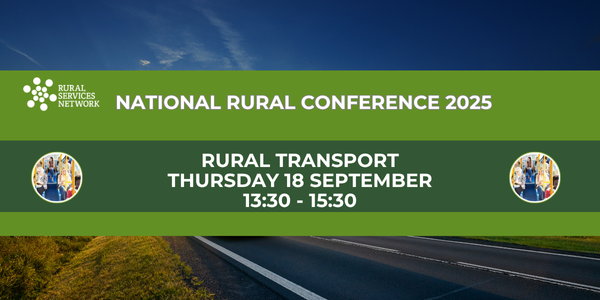 |
David Peinturier, Consultant, Freight Innovation Fund, Connected Places Catapult
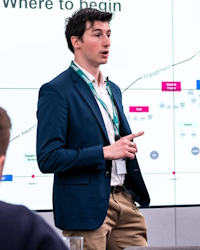 David Peinturier is an Enterprise Support Consultant at Connected Places Catapult, where he leads the DfT Freight Innovation Cluster, convening 400 professionals across industry, academia, and government to enable innovation in transportation and logistics. Connected Places Catapult - the UK's innovation accelerator for transport, the built environment, cities and local growth - has worked in partnership with the DfT to address complex transportation challenges in rural and underserved areas. Through the DfT rural transportation programme, David has pioneered community-centred approaches to innovation, facilitating partnerships between local councils and SMEs to ensure transportation solutions address genuine local needs. As a result, participating SMEs obtained further commercial contracts to keep trialling their solutions.
David Peinturier is an Enterprise Support Consultant at Connected Places Catapult, where he leads the DfT Freight Innovation Cluster, convening 400 professionals across industry, academia, and government to enable innovation in transportation and logistics. Connected Places Catapult - the UK's innovation accelerator for transport, the built environment, cities and local growth - has worked in partnership with the DfT to address complex transportation challenges in rural and underserved areas. Through the DfT rural transportation programme, David has pioneered community-centred approaches to innovation, facilitating partnerships between local councils and SMEs to ensure transportation solutions address genuine local needs. As a result, participating SMEs obtained further commercial contracts to keep trialling their solutions.
Katherine Davies, Sustainable Travel Manager, Babergh District Council and Mid Suffolk District Council
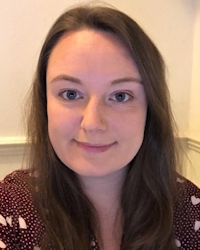 Katherine works across two rural districts in Suffolk, with patches of limited transport provisions between villages and market towns. Katherine’s role involves working closely with parish councils, community groups, transport operators, and local authority partners to deliver practical, sustainable solutions to rural mobility challenges. She is currently overseeing two new grant funded pilot passenger transport schemes that aim to improve access to services, employment, and social opportunities for residents in these areas.
Katherine works across two rural districts in Suffolk, with patches of limited transport provisions between villages and market towns. Katherine’s role involves working closely with parish councils, community groups, transport operators, and local authority partners to deliver practical, sustainable solutions to rural mobility challenges. She is currently overseeing two new grant funded pilot passenger transport schemes that aim to improve access to services, employment, and social opportunities for residents in these areas.
Helen Marshall, Project Manager, Sustainable Transport, Norfolk County Council
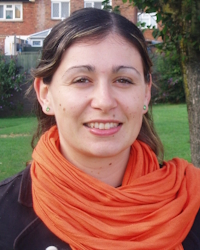 Helen is a Project Manager in the Sustainable Transport Team at Norfolk County Council and has over 20 years experience as a project and programme manager. She has worked on an array of sustainable transport initiatives across different Local Authorities. Helen’s skill set is broad, she is adept at stakeholder engagement, behavioural change, transport strategy and policy, transport funding, and sustainability. Helen holds a Master’s Degree in Transport Planning and Practice and is also a Healthy Streets practitioner.
Helen is a Project Manager in the Sustainable Transport Team at Norfolk County Council and has over 20 years experience as a project and programme manager. She has worked on an array of sustainable transport initiatives across different Local Authorities. Helen’s skill set is broad, she is adept at stakeholder engagement, behavioural change, transport strategy and policy, transport funding, and sustainability. Helen holds a Master’s Degree in Transport Planning and Practice and is also a Healthy Streets practitioner.
Ali Clabburn, Chair and Founder, Mobilityways
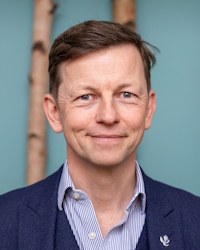 Ali Clabburn is the Founder and Chairman of Mobilityways. Headquartered in Norwich, Mobilityways started life back in 1998 when Ali struggled to get home from university and set up liftshare.com, the first online carpooling network. In the 27 years since then Liftshare has gone on to save clients over a billion car miles and its parent company, Mobilityways, combines data, innovative tech and behaviour change expertise to rapidly improve the availability of sustainable travel options and to change employee travel habits.
Ali Clabburn is the Founder and Chairman of Mobilityways. Headquartered in Norwich, Mobilityways started life back in 1998 when Ali struggled to get home from university and set up liftshare.com, the first online carpooling network. In the 27 years since then Liftshare has gone on to save clients over a billion car miles and its parent company, Mobilityways, combines data, innovative tech and behaviour change expertise to rapidly improve the availability of sustainable travel options and to change employee travel habits.
Dr Natlie Partridge, Research Associate in Rural Innovation, NICRE
 I am a Research Associate in Rural Innovation at NICRE, engaging with our partners to help deliver and evaluate our practical innovation projects with communities and businesses in the North East.
I am a Research Associate in Rural Innovation at NICRE, engaging with our partners to help deliver and evaluate our practical innovation projects with communities and businesses in the North East.
The projects include topics such as lower carbon food business logistics, innovation in agriculture, net zero transitions in community spaces, redevelopment of rural buildings and community-led housing. My work involves community and stakeholder engagement, the planning and delivery of events, and primary research through surveys, interviews, observations and workshops.
 |


